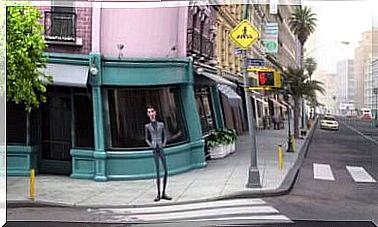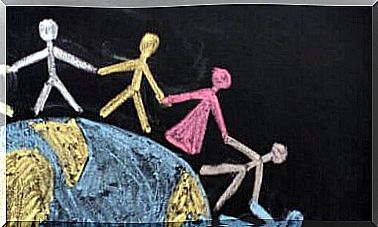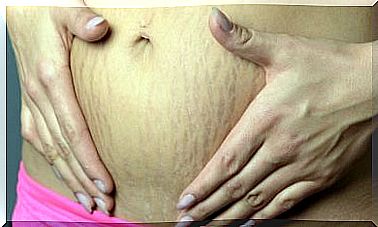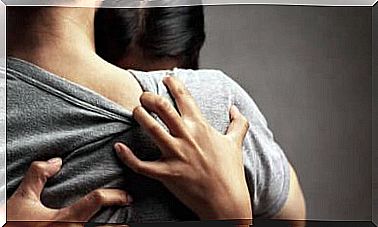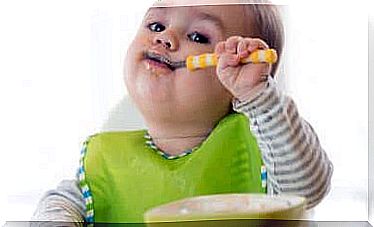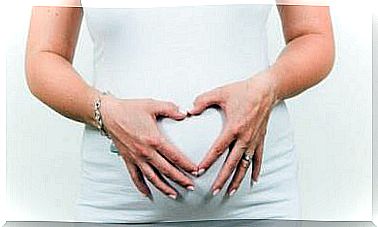Symptoms During The Second Trimester Of Pregnancy
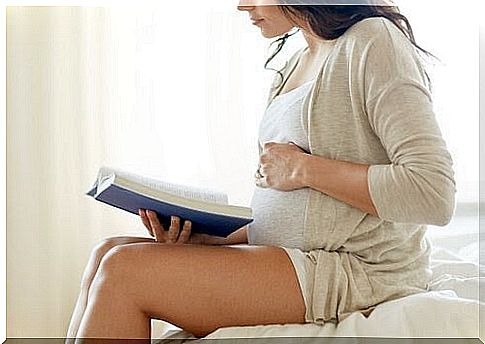
Creating a life and carrying it in your womb for nine months is a unique experience. The body changes and develops week by week. Here we go through the symptoms you may experience during the second trimester of pregnancy.
The first 90 days are perhaps the most difficult due to all the hormonal changes and the extra energy consumption. However, the symptoms of the second trimester of pregnancy are not as debilitating.
From week 13 to week 26, the physical changes of pregnancy become apparent.
The stomach and breasts continue to grow. The nausea disappears, but other signs such as back pain, skin pigmentation and constipation appear.
Specialists recommend trying to limit or control weight gain during this phase.
By the sixth month, the mother should have put on at least 6 kg in a healthy way.
Symptoms of the second trimester of pregnancy
Some women may experience all sorts of discomfort during pregnancy, while others experience only some discomfort. Some women do not experience any problems at all.
Here are some common symptoms of the second trimester of pregnancy:
- Pain and aches. Especially related to the back, pelvis, hips and legs. As the baby grows, the back carries the growing belly. The ligaments in the hips and pelvis extend and make room for the necessary enlargement at birth, which can generate pain.
- Cramps. Starting in the fourth month, leg cramps are common. These are generated by pressure on nerves and blood vessels. A complication that creates great pain and swelling in the extremities is deep vein thrombosis, which must be remedied immediately by a doctor.
- Heartburn and constipation. The uterus grows and compresses the stomach and intestines. This changes the balance between food and stomach acids. The effect of hormones on the digestive system adds an extra layer of complexity to this issue. To avoid or reduce discomfort, it is advisable to drink enough fluids and eat fruits and grains, in addition to exercising lighter.
- Beware of hemorrhoids! As a result of constipation and pressure on rectal veins, hemorrhoids may appear or worsen during the second trimester of pregnancy. Alcohol and spicy foods should be avoided, and an exercise routine that stretches the muscles is recommended.
- Skin pigmentation. These changes may decrease or disappear completely after pregnancy. Dark spots appear on the face, which becomes more sensitive to the sun’s rays. A good sunscreen helps prevent marks on the face. Breasts and abdomen also tend to stretch and dry out, resulting in itching or stretch marks.
- A very visible black line tends to appear from the navel to the abdomen.
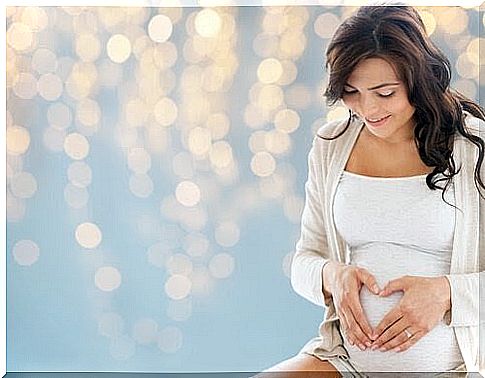
Other physical changes in the expectant mother
- The hair changes. A pregnant woman’s hair undergoes changes similar to those generated before menstruation. These problems can be alleviated by continuing to drink enough water and applying creams and oils to the skin.
- Sweating. Excessive sweating can be another symptom of the second trimester of pregnancy due to increased number of sweat glands.
- Increased heart rate. More blood is pumped around and the heart beats faster, which can trigger strong palpitations or tachycardia. Stress and excessive weight gain can also affect the heart’s ability to function normally. This can be avoided by taking it easy and having a good posture.
- Change in the appearance of the breasts. The breasts become large and heavy after the first trimester. However, it is not until the fourth month that new milk ducts begin to develop.
- Small nodules called Montgomery’s glands appear around the areola. The blood flow to the breasts also increases and the veins become more noticeable.
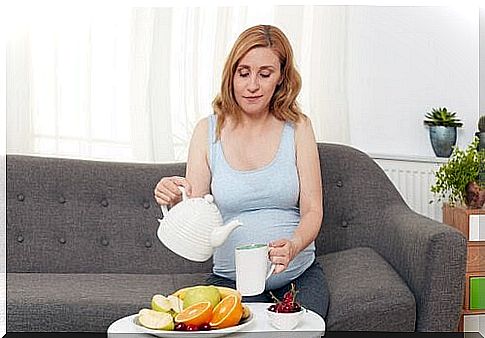
- Vaginal discharge. The body generates antibodies, and during this time it expels a transparent or whitish substance through the vagina in larger amounts than usual. They are odorless and prevent bacteria from growing in the vagina.
- Inflamed gums. Minor bleeding may occur when brushing your teeth. Due to excess blood flow, nosebleeds or sinusitis can also occur due to swelling of the mucous membranes.
- Insomnia. The movement of the fetus can cause symptoms during the second trimester of pregnancy. The baby begins to stretch and do “push-ups” in the abdomen. These movements can cause pain or discomfort to the mother at bedtime, especially if she does not have good posture.
In summary…
As we said, these symptoms during the second trimester of pregnancy can vary from woman to woman, as well as with the characteristics of pregnancy and the baby.
The most important thing is to alleviate them as much as possible for an enjoyable pregnancy.
Finally, remember that routine check-ups at the maternity ward allow you to raise issues and ask for solutions to any problems that may arise.
